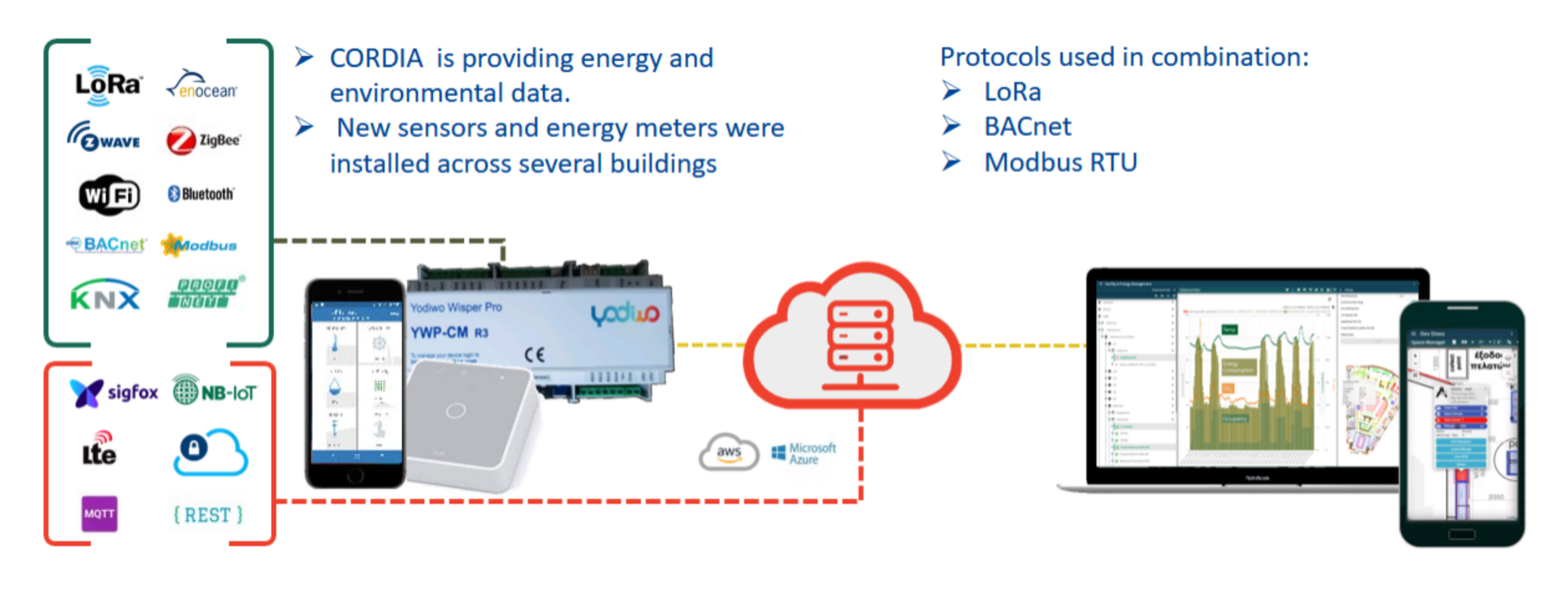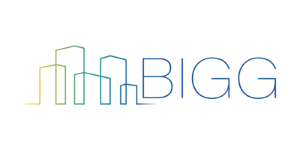CORDIA (former ENGIE Hellas) provides data related to the end user cases of Energy Performance Contracts (EPC) of its portfolio at the private sector of commercial office buildings. These data are used to develop the project and are combined to reach energy efficiency targets of a wider area of all building sectors. Until now, it has developed its own Facility and Energy Management IoT Platform, named “CORDIA Connect”, and acquired enough of the skills needed to perform the services of providing building operations & maintenance and energy management. More specifically, CORDIA provides the energy and environmental data in a set of its own buildings and collaborates to set up all the necessary equipment and any API connections.
The company has already developed automated controls and IoT technology in office buildings in order to optimize the Electromechanical facilities, create also an optimized environment without human interference and empowerment of the energy efficiency by utilizing historical and real-time data across a wide spectrum of building systems. The initial objective was to bridge diverse siloed systems under a common open and scalable management harmonization layer, alleviating traditional lock-in practices. Through this approach, heterogenous smart building controllers, environmental outdoor and indoor sensors, meters and analyzers, space occupancy information and weather forecasting data are unified and utilized to provide enhanced situational awareness and data insights, upon which energy efficiency related interventions can be enforced and studied.
The evolution of this platform includes application of analytic models and deployment of machine learning algorithms which will offer ‘personalized’ energy efficiency and de-stress the equipment resulting to lower operating cost as well.
CORDIA offers Facility Management Service Providers (FMSP) the ability to monitor, profile, map and analyze energy consumption in buildings or industrial plants and track indoor air quality (temperature, humidity, CO2). It can also be expanded to include other management and monitoring features, such as alerting systems (water management fire detection, door/window opening etc.) and occupancy of spaces (for example information about meeting room bookings from MS Outlook)





